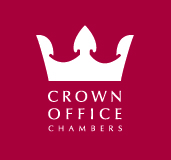1. What are the key tax laws and regulations in Morocco that individuals and businesses should be aware of?
The General Tax Code consolidates all the tax laws related to corporate tax, personal income tax, value added tax (VAT), and registration duties.
With regard to the municipal taxes to which companies are subject, these are governed by Law 47-06, in particular with regard to business tax and tax on communal services.
2. Can you explain the tax obligations for residents and non-residents in Morocco?
Morocco operates a territorial tax system. Companies (both resident and non-resident) are generally subject to corporate tax only on income generated from activities carried on in Morocco. Foreign corporations are subject to taxation on income arising in Morocco if they have, or are deemed to have, a permanent establishment in Morocco. Morocco has signed several tax treaties to avoid double taxation.
Morocco applies a special company income tax for all the non-residents who provide services to Moroccan resident companies. The tax rate is 10%. This tax is collected as withholding tax paid by the Moroccan beneficiary of the service.
3. What are the different types of taxes imposed in Morocco, such as income tax, VAT, and corporate tax?
Corporate income tax
The definition of ‘corporate’ covers limited liability companies, limited partnerships by shares, general and limited partnerships in which at least one partner is a corporate entity, civil companies, branches of foreign corporations, public sector companies having profit-oriented activity and joint ventures having business-oriented activity.
The normal rate is:
- 20% from 1 MAD to 100,000,000 MAD
- 35% above 100,000,000 MAD
A higher CIT rate of 40% applies to leasing companies and credit institutions.
Foreign contractors carrying out engineering, construction or assembly projects relating to industrial or technical installations may opt to be taxed at a rate of 8% calculated on the total contract price net of VAT and similar taxes.
Companies are always subjected to a legal minimum tax (cotisation minimale (CM)) of MAD 3,000 or 0.25% of the annual turnover. The CM is not payable by companies during their first 36 months of operation.
A social solidarity contribution on profits and income is hereby introduced and payable by companies and individuals.
A 15% branch remittance tax is imposed on profits remitted to the head office. The Moroccan-sourced income of Moroccan branches of foreign companies is subject to income tax at the ordinary corporate rate of tax. The taxable income is calculated as if the branch was a separate entity from the foreign company.
Value added tax
Suppliers of goods and services must add VAT to their net prices. Where the purchaser is also liable for VAT, input VAT may be offset against output VAT. The standard VAT rate is 20% and applies to all suppliers of goods and services, except those taxed at other rates or those who are exempt. A reduced rate of 10% applies to specific items such as banking and credit services, leasing, gas, water and electricity.
Personal tax
Individuals, regardless of nationality or activity, who have their habitual residence in Morocco are subject to a personal income tax (impôt sur le revenu or IR) on their worldwide income on a progressive scale between 10% and 38%.
Capital gains derived from the disposal of immovable property are generally subject to tax as part of the personal income of the individual, ie, 20%.
4. Are there any tax incentives or exemptions available for businesses or individuals in Morocco?
There are specific areas which provides tax incentives :
- Areas for industrial acceleration: incentives on corporate tax and withholding tax on dividends
- Casablanca Finance City: incentives on corporate income tax and income tax on salaries and withholding tax on dividends
- Offshoring services areas: incentives on corporate income tax and income tax on salaries
5. What are the requirements for tax registration and filing in Morocco? Are there any specific deadlines that need to be followed?
The calendar year is normally the fiscal year although a company may opt for a different fiscal year. Accounts for income tax purposes must be filed within three months after the end of the relevant accounting period. Corporate tax is payable in four equal instalments, based on the prior year’s assessment. Foreign companies that have elected for the 8% default taxation must submit a declaration of their turnover before 1 April following each calendar year.
6. Can you provide guidance on the taxation of international transactions and cross-border investments in Morocco?
Article 214-III of the General Tax Code provides a framework for analysing international transactions between affiliated companies:
- Obligation to provide the tax authorities, by electronic means, with the documentation needed to justify the transfer pricing policy, the list and procedures for which are set by regulation, including :
- a master file
- a local file
- Documentation must be produced when the turnover achieved and declared, excluding VAT, is greater than or equal to 50 million DH; or the gross assets shown on the balance sheet at the end of the financial year concerned are greater than or equal to DH50 million.
- Obligation to make a country-by-country declaration in accordance with OECD guidelines.
- Possibility of making prior agreements with the tax authorities valid for four years.
7. How does Morocco address tax evasion and tax avoidance? What are the penalties for non-compliance?
A fine equal to 100% of the amount of tax evaded is applicable to any person who has taken part in manoeuvres designed to evade payment of tax payment, or assisted or advised the taxpayer in carrying out the said manoeuvres, independently of any disciplinary action if he holds a public office.
8. Are there any specific tax considerations for specific industries or sectors in Morocco?
Newly incorporated companies whose activity (22 activities available) is industrial and provided in a specific act are exempted from corporate income tax for five years. Example of activities:
- Food industry
- Textile industry
- Clothing industry
- Leather industry
- Wood and cork products industry
- Paper and cardboard industry
- Printing and reproduction of recordings
- Chemical industry
- Pharmaceutical industry
9. Can you explain the tax implications for expatriates working in Morocco, such as residency status, tax treaties, and foreign income reporting?
Since a Moroccan resident is taxed on worldwide income, the Moroccan tax system provides relief from foreign taxes paid on such worldwide income by means of a foreign tax credit. This foreign tax credit cannot exceed the Moroccan tax otherwise payable in respect of the foreign-source income.
Individuals who do not have their habitual residence in Morocco are subject to tax only on Moroccan-source income.
10. What are the options for resolving tax disputes in Morocco, such as administrative appeals or legal proceedings?
In case of tax disputes, taxpayers can present their claim in front of :
- Local tax commission
- Regional tax commission
- National tax commission
- Administrative court
Subscriber Access
You must be logged in to view full premium content.
Links









